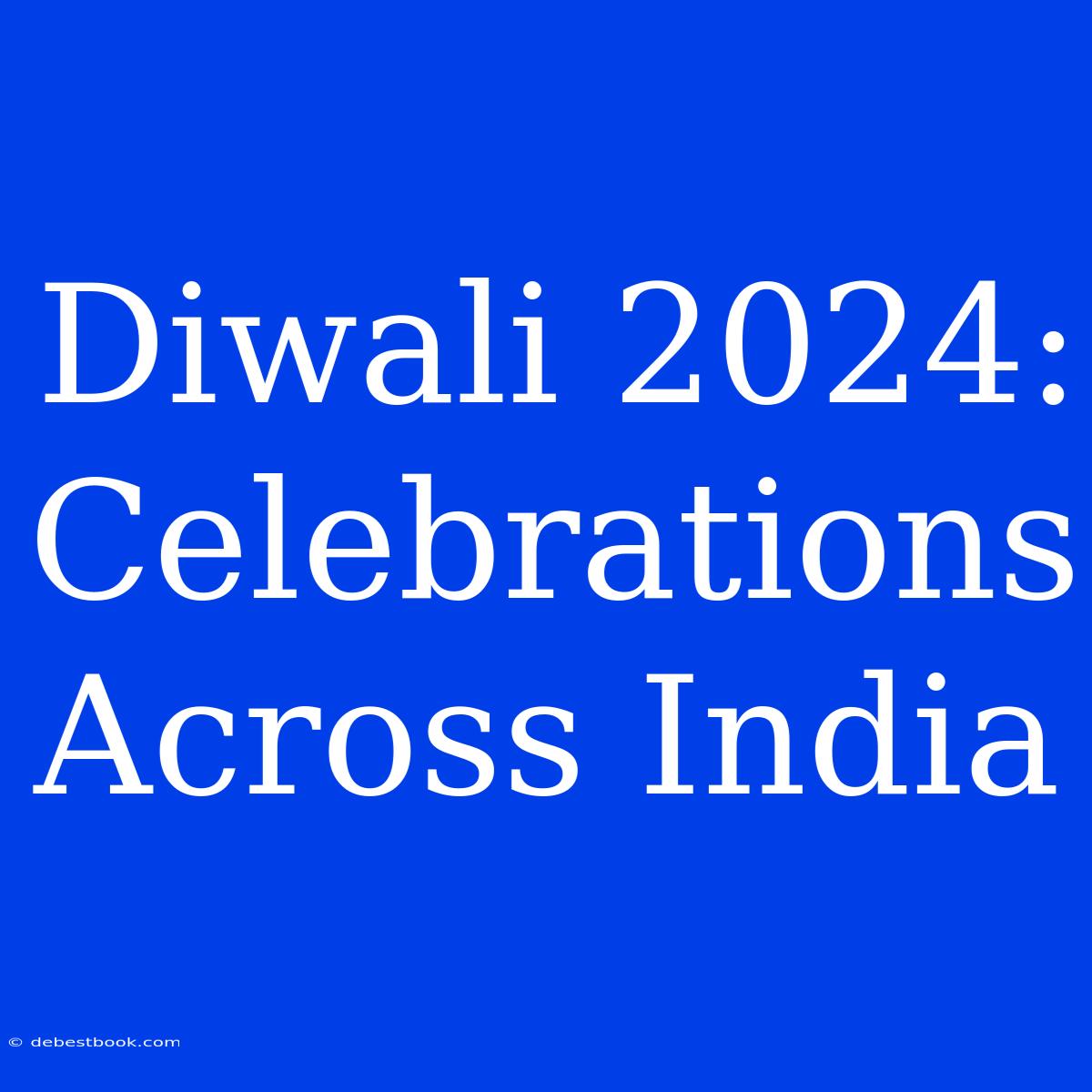Diwali 2024: Celebrations Across India - A Festival of Lights Illuminating the Nation
What is Diwali? Diwali, the "Festival of Lights," is one of the most significant festivals celebrated by Hindus, Jains, and Sikhs in India and around the world. This festival symbolizes the victory of good over evil, light over darkness, and knowledge over ignorance. Diwali is celebrated with great joy and enthusiasm, illuminating homes, streets, and communities with countless diyas (earthen lamps), candles, and fireworks.
Why is this topic important? Understanding Diwali is crucial for appreciating India's diverse cultural tapestry and the rich traditions that bind its people together. This article delves into the essence of Diwali, exploring its significance, celebratory practices, and its impact on various communities across India.
Our analysis involved researching historical accounts, cultural practices, and regional variations of Diwali celebrations. We gathered insights from diverse sources, including academic journals, folklore archives, and online communities to provide a comprehensive overview of Diwali across India.
Key Aspects of Diwali in India:
| Aspect | Description |
|---|---|
| Religious Significance | Celebrates the return of Lord Rama to Ayodhya after defeating Ravana. |
| Symbolism of Light | Diwali signifies the triumph of light over darkness, knowledge over ignorance, and good over evil. |
| Celebratory Practices | Decorating homes with diyas, rangoli patterns, fireworks, and special delicacies. |
| Regional Variations | Unique customs, traditions, and rituals in different parts of India. |
| Economic Impact | A significant economic boost with increased spending on decorations, gifts, and sweets. |
| Social Impact | Promotes social bonding, family gatherings, and community celebrations. |
Diwali: A Festival of Light and Togetherness
Diwali is celebrated over five days, with each day having a specific significance.
Day 1: Dhanteras: This day is dedicated to wealth and prosperity. People buy new utensils, gold, and silver.
Day 2: Choti Diwali: This day marks the beginning of Diwali celebrations. People light diyas and perform puja (worship) for Lakshmi, the goddess of wealth.
Day 3: Diwali: This is the main day of the festival. People decorate their homes with diyas and rangoli, wear new clothes, and exchange gifts. Fireworks fill the sky, illuminating the night with vibrant colors.
Day 4: Govardhan Puja: This day is dedicated to Lord Krishna. People worship Govardhan Hill and thank him for protecting them from the wrath of Indra.
Day 5: Bhai Dooj: This day is dedicated to the bond between brothers and sisters. Sisters apply tilak to their brothers and offer them sweets.
Each region in India celebrates Diwali with unique customs and traditions. In some regions, people light earthen lamps called "diyas" on the steps of their homes, while others decorate their homes with rangoli, intricate patterns made with colored powder or flowers. In some areas, people set off fireworks to ward off evil spirits, while in others, they perform traditional dances and songs.
Diwali is a time for family and friends to come together and celebrate. People exchange gifts, enjoy delicious food, and spend time with loved ones. The festival also plays a significant role in promoting social harmony and unity.
In conclusion, Diwali is a vibrant celebration that brings together people from all walks of life. It is a time to reflect on the victory of good over evil, light over darkness, and knowledge over ignorance. The festival also underscores the importance of family, community, and cultural heritage. As we celebrate Diwali in 2024, let us remember its true essence and embrace its spirit of light, joy, and togetherness.

